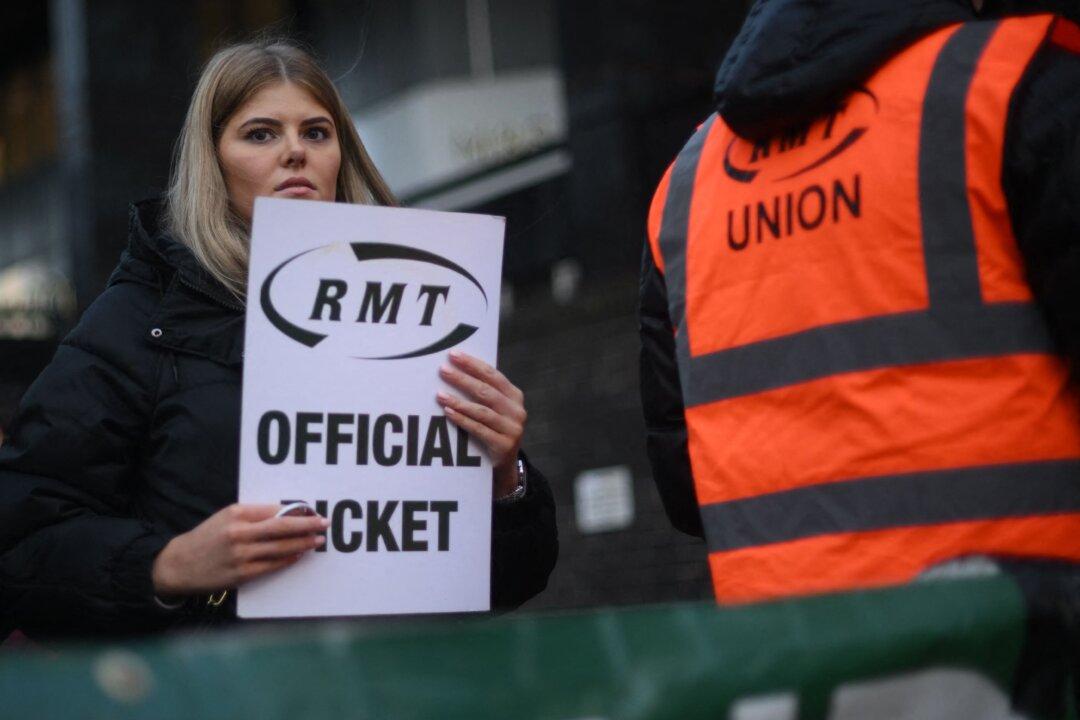The UK government’s plans to impose minimum service levels on public services during strike action need to be amended as they are likely to be incompatible with human rights law, a parliamentary committee has said.
The government announced the Strikes (Minimum Service Levels) Bill on Jan. 5, saying it will ensure “minimum safety levels” in the most crucial sectors when industrial action takes place.





